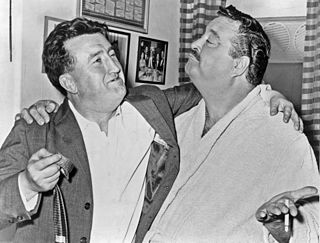A Quote by Kurt Vonnegut
Einstein's E=mc2 is an extraordinary concept. So radical: matter and energy are two phases of the same sort of general stuff. There's only one other idea that radical: Forgive us our trespasses as we forgive those who trespass against us.
Related Quotes
Two radical ideas have been introduced into human thought. One of them is that energy and matter are pretty much the same sort of stuff. That's Einstein. The other is that revenge is a bad idea. Revenge is an enormously popular idea but, of course, Jesus came along with the radical idea of forgiveness. If you're insulted, you have to square accounts. So this invention by Jesus is as radical as Einstein's.
You know, Sage, Jesus didn't tell us to forgive everyone. He said turn the other cheek, but only if you the one who was hit. Even the Lord's Prayer says it loud and clear: Forgive us our trespasses, as we forgive those who trespass against us. Not others. What Jesus challenges us to do is to let go of the wrong done to you personally, not the wrong done to someone else. But most Christians incorrectly assume that this means that being a good christian means forgiving all sins, and the sinners.
To forgive the incessant provocations of daily life - to keep on forgiving the bossy mother-in-law, the bullying husband, the nagging wife, the selfish daughter, the deceitful son - how can we do it? Only, I think, by remembering where we stand, by meaning our words when we say in our prayers each night, “Forgive our trespasses as we forgive those who trespass against us.” We are offered forgiveness on no other terms. To refuse it is to refuse God’s mercy for ourselves. There is no hint of exceptions and God means what he says.
Besides loving each other, we must bear with each other and pardon ? 'forgive them that trespass against us' ? in order that our heavenly Father may 'forgive us our trespasses' (Mt. 6:14). Thus, with all your soul honor and love in every man the image of God, not regarding his sins, for God alone is Holy and without sin; and see how He loves us, how much He has created and still creates for us, punishing us mercifully and forgiving us bounteously and graciously. Honor the man also, in spite of his sins, for he can always amend.
'If he trespass against you seven times in a day, and seven times in a day turn again to you, saying, I repent; you shall forgive him' (Lk. 17:4). As the Searcher of hearts, the Lord knows that men are liable to very frequent trespass, and that, having fallen, they often rise up again; therefore He has given us the commandment to frequently forgive trespasses, and He Himself is the first to fulfill His holy word. As soon as you say from your whole heart, 'I repent,' you will be immediately forgiven.
We forgive, if we are wise, not for the other person, but for ourselves. We forgive, not to erase a wrong, but to relieve the residue of the wrong that is alive within us. We forgive because it is less painful than holding on to resentment. We forgive because without it we condemn ourselves to repeating endlessly the very trauma or situation that hurt us so. We forgive because ultimately it is the smartest action to take on our own behalf. We forgive because it restores to us a sense of inner balance.

































